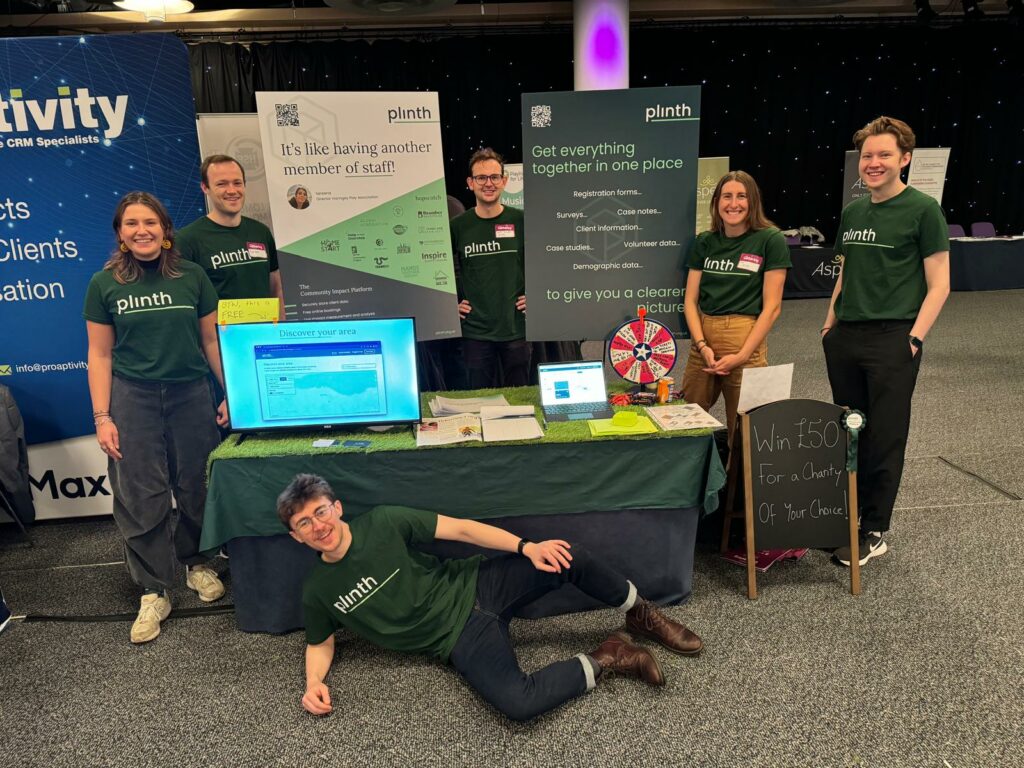
In a recent blog post, resident tech journalist Manasa Narayana shared her SPACE4 story. Naturally, we liked that post. So much so, that we thought we better turn it into a series…
Over the next few months, this series will spotlight members and share stories about some of the exciting things they are working on at SPACE4. There is a lot of impact-driven activity going on across the two floors of the building. It is about time we shout about it.
First up, is Plinth.
Plinth is a company (yes, a company. They wrote a blog post on why, which you can find here) that seeks to help charities and community organisations to measure, emphasising and extenuate their social impact.
The idea is to take away the drudgery of monitoring and evaluating impact for resource poor organisations to allow them to focus on core activities. “Most people don’t work for a charity because they like using excel” emphasises Will, one of the co-founders of Plinth.
Plinth have also developed an AI grant writing tool. This is based on open-source LLMs (specifically paid versions of OpenAI, Anthropic and Mistral’s systems) with prompts designed by the team to elicit more effective responses. The aim is to help charities and community organisations more effectively secure funding. Recently, they enjoyed their first major success; with the tool leading to one small organisation securing a grant from the national lottery.
Plinth has been operational for six years. The company joined SPACE4 back in 2018 when they were a team of one- and a- half called Time to Spare. Back then, one of the co-founders Will, was still working another job and funnelling the limited time that he had to spare into the establishment of the organisation alongside his business partner, Tom.
Space4 was much smaller too. “It was just a one-room office then” explains Will. Fast forward to 2024 and Plinth and SPACE4 have both grown significantly; the former into a 6-person business that provides services to over 700 charities and small organisations and the latter into a multi-story co-working space with a myriad of people broadly connected under the ‘Tech for Good’ banner.
Sharing a physical space with people that have technical skills and a desire to use them for positive social impact has been a major benefit for Plinth. Will highlighted the benefits of Founders and Coders (FAC) specifically: “Sharing a space with FAC has been really beneficial. Tom was a self-taught coder, so we have been able to learn from them.”
Perhaps more tangibly, Plinth has also secured business via conversations with other organisations in the Space. An example is their 2023 project with Islington Council which was passed over by Outlandish. Through this, Plinth helped the council to track the impact of their holiday camps for children in the borough, recording over 18,000 attendees across activities such as Kayaking with Islington Boat Club on Regents Canal. They have now developed a referral scheme with Outlandish to provide the cooperative with a percentage of the profits from any projects secured through them.
So, this is really a story of digital multiple organisations helping each other to grow.
And it doesn’t end there. From employing FAC graduates, to introducing another business – Axle – into the space and running a masterclass on how charities can use data, Plinth has contributed to Space4 in a myriad of ways.
When I ask Will what his favourite Space4 event has been, though, his answer isn’t a masterclass, or panel discussion, but the parties. This is fair enough, SPACE4 parties are good.
Book a tour or free trial day
Get in touch via this form or give us a ring on 07756531666.

